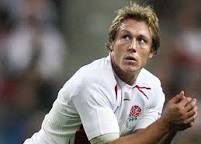
Rituals
In the previous instalment, I highlighted music's ability to take us time travelling in the past! It might also help us re-programme the way difficult situations are confronted in the future.
Some years ago, I became interested in Neuro-Linguistic Programming, NLP. It was developed in the 1970s and focuses on connections between neurological processes (neuro-), language (linguistic) and acquired behavioural patterns (programming). It is claimed that these can be managed to achieve specific goals in life. Many scientists regard it as a pseudo-science, meaning there is little, if any, quantifiable data to support claims about its efficacy. In part, I think those reservations are because some proponents would like to see it regarded as an accepted treatment for people suffering from psychological or behavioural problems. Despite my interest, I'm firmly in the doubtful camp regarding the treatment of 'patients'. However, I'm unwilling to discount its value totally. Why? Here are a few examples.
Jonny Wilkinson. When England won the Rugby Union World Cup in 2002, he was a vital team member. Not just because of his trophy-winning drop-kick in the last seconds of the final, but also because of his almost uncanny, metronomic reliability when it came to scoring from conversions and penalties in all the preceding matches. Those moments just before he took a place kick were fascinating. The way he held his arms as he shifted his gaze between the ground in front of him and the goal; creating a mental flight path for the ball to pass between the posts. Like a lot of top athletes, he used ritual as a way of shutting out distractions. And not just the noise flowing down from the stands; he was also quietening those little voices in his head, particularly the loud, insistent one saying, 'youre going to miss this!'
Rafael Nadal. Whereas Wilkinson's rituals were compelling, I find Nadal's incredibly uncomfortable to witness. The precise placement of drinks bottles, the route to and from the Umpire's Chair along specific white lines and the number of pre-serve bounces of the ball. I feel like I'm watching someone in distress, but doesn't it work for him? And what a gentle and generous person he is when he's not confronting his court demons and a highly-ranked opponent on the other side of the net.
Paul McKenna. If it seems like I'm about to criticise him, I'm not! But I should literally take a leaf from one of his books. He has written quite a few, although, arguably, it's the same book, just with different titles, including 'Positivity', 'Control Stress', 'I can make you Rich' and 'I can make you Confident'. He is a strong advocate of NLP, and I have no doubt that he has helped readers and harmed none. He's relevant because of something I heard him mention during an interview; it falls under the heading of ritual, but for anyone confused about NLP, he also outlined the process in a readily understandable way.
He was describing how he had found it tough to combat problems with stage fright. So using his knowledge of NLP, he devised a method of re-programming his thought processes. Firstly, he sat in a comfortable, quiet place and listened to pieces of music that generated positive feelings whenever he heard them. He gently caressed his ear lobe as he relaxed and enjoyed the sounds. He did this repeatedly and eventually found that by simply touching that part of his ear, he recreated some of those lovely feelings without the music playing. Finally, it became his ritual to do that just before entering the stage, replacing fright with feelings of strength and confidence.
So in the future, why not try some pseudo-science to supplement the power of lucky pants?
Post Views : 390